

Gender specialists offering assessments for gender dysphoria diagnosis, hormones, surgical referrals and counselling services
How we can help.
We offer expert assessments for adults with gender dysphoria who may wish to consider medical transition. We offer informed, balanced and compassionate assessments for those starting hormones or seeking surgical referrals.
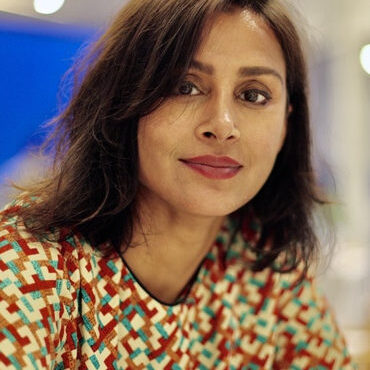
Dr Kirpal Sahota
Mbchb, cct, frcpsych, consultant forensic psychiatrist and gender specialist.
Current NHS appointment ; Adult Gender Identity Clinic at the Tavistock and Portman NHS Trust, London.
Guidance and medical support for all stages of the transition pathway with respect for all aspects of identity. Consideration of a person's background, circumstances, life choices and desired goals.
GMC reference no; 3338472
- Fully Registered Medical Practitioner with the General Medical Council.
- NHS Consultant Psychiatrist at the Gender Identity Clinic (GIC)
- Fellow of the Royal College of Psychiatrists and on the Specialist register
- Bethlem and Maudsley Hospital Forensic Psychiatry Rotation
- Approved Clinician and Section 12 approved
- Approved on the UK Gender Recognition Panel
- Member of the World Professional Association for Transgender Health (WPATH)
- Member of the British Association of Gender Identity Specialists (BAGISS)
- Member of the European Society of Sexual Medicine (EPSS)
Testimonials
"Firstly, I would just like to express my sincerest thanks for your help yesterday. I was so nervous and you put me at ease straight away. I am truly grateful for your kindness and understanding throughout the appointment, and I finished the appointment feeling uplifted and hopeful."
"Thank you very much to Dr Sahota and yourself for sending the report, I cannot deny that I was very overwhelmed with joy and relief after all these years, it means so much to me."
"May I thank both Dr Sahota and yourself for all your time and interest and effort in my case.
I am truly grateful for such a rewarding and excellent service."
"Thank you for a wonderful appointment, I feel extremely lucky to have met Dr Sahota!"
"It was great thank you, please give my thanks to Dr Sahota and her team, it was really rewarding and everyone has been so nice."
"Thank you so much for your help. I had my appointment with Dr Sahota on Sunday and I couldn't be more pleased with how it went."
"Dr. Sahota was excellent from start to finish. She was very professional and friendly, making sure to reassure me, and I definitely felt that she was skilled and experienced. My referral letter for HRT was sent through quickly after the appointment too. I would recommend her without a doubt."
"I think that Dr Sahota was very friendly, and definitely put me at ease during the appointment. I also think that she provided me with a lot of useful information, and provided me with plenty of opportunity to ask questions. I have no complaints or negative feedback."
"My appointment with at the weekend was great, thank you for asking. Dr. Sahota was very helpful, caring, understanding & put my mind at ease on a number of subjects."
The appointment went well, it was good to finally be able to see someone to talk to, to get a diagnosis and get everything off my chest. Dr Kirpal Sahota was very nice and her manner and approach made it very easy to talk to her and it put me at ease.
"Thanks for your email, the session was very good thanks, very affirming. I was quite nervous but Dr Sahota did a great job of putting me at ease!"
"I'm doing okay and the appointment went extremely well! Thank you for the updates and I have no feedback, from start to appointment both you and Dr Sahota have been lovely."
"I found the consultation with Dr Sahota very useful and has given me encouragement that I am now making progress towards the goals I wish to achieve in my transition...
...This is in contrast to the last few months when I have felt that I was treading water and not getting very far. Dr Sahota herself was very pleasant and easy to get on with and I look forward to a follow-up appointment with her in a few months time."

Welcome to Simply better transgender
Dai Davies has over 20 years’ experience of Transgender Surgery and an International reputation for his surgical expertise. His staff provide an understanding and caring environment and work with both private patients and NHS referrals from all over the country. Together with Miles Berry a major paper was published in JPRAS (Journal of Plastic, Reconstructive & Aesthetic Surgery) . This reported the scientific analysis of 100 cases of Female to Male Transgender Chest Reconstruction and is currently the world’s largest series.
FtM Chest Wall Surgery
M2F Breast Augmentation

Facial Feminisation

Body Contouring and Shaping

Before & After Gallery
View examples of patient before and after photos

Make an enquiry
In association with, the london gender clinic..
The London Gender Clinic is run by the well-respected and highly experienced Dr Richard Curtis.
As the largest private Transgender clinic in the United Kingdom it provides comprehensive healthcare tailored to the individual to act as both supporters and facilitators of well-informed solutions involving gender reassignment.
Gender Care
GenderCare is a network of individual healthcare practitioners, all qualified, Consultant-level professionals experienced in the gender field. We work directly with a number of practitioners including Dr Stuart Lorimer
Harley Street Gender clinic
Providing guidance, support and treatment toward authentic gender expression in association with Dr Vickie Pasterski.

Gender identity clinic (GIC)
Available in:, we help people with.
- Gender dysphoria
The gender identity clinic is the largest and oldest gender clinic in the UK, dating back to 1966. We accept referrals from all over the UK for people with issues related to gender.
We are a multi-disciplinary administrative and clinical team, including psychologists, psychiatrists, endocrinologists and speech and language therapists. We work together in order to provide holistic gender care, focusing on the biological/medical, psychological and social aspects of gender.
What to expect
In order to assess your individual needs and goals, we ask a number of questions about your background, current circumstances and future plans. The purpose of these questions is to help us gain a clear idea of how we can help you.
Based on your individual needs and circumstances your clinician will explore with you what may happen next with your gender care. For example, if you would like to, but have not yet made a social gender role transition, they may explore with you any possible obstacles in your way and help you consider ways to address these.
Additionally, in order to support you through the transition process, clinicians may discuss with you the possibility of referrals to other services within the GIC or local to you (which your GIC clinician can ask your GP to make).
We will keep your GP up-to-date about your progression through the clinic and you will be copied into the reports sent. Your clinician will also be able to offer you information and advice about other forms of support that you may find helpful as you move along your gender care pathway.
How to access this service
Your GP or another health professional can refer you directly to the Gender Identity Clinic.
We also accept self-referrals via your GP.
NHS e-Referral Service
To locate the service on the NHS e-Referral Service, enter the following in the search fields:
- Priority: Routine
- Specialty: Gender Identity Services
- Clinic Type: Gender Identity
- Organisation or Site Name field: Tavistock and Portman
Waiting times
There is a high demand for appointments, which is common across other gender identity clinics around the UK.
| Number of people on our waiting list | 15,532 |
| Number of referrals received in the month | 77 |
| Number of first assessments offered in the month | 80 |
| Total appointments offered in the month | 988 |
| We are currently offering first appointments to people referred in | December 2018 |
Monthly referral, assessment and discharge data
| 77 | 80 | 66 | |
| 133 | 68 | 101 | |
| 212 | 72 | 143 | |
| 253 | 35 | 167 | |
| 406 | 34 | 614 | |
| 455 | 34 | 628 | |
| 234 | 35 | 23 | |
| 424 | 71 | 0 | |
| 402 | 61 | 164 | |
| 417 | 64 | 173 | |
| 303 | 48 | 158 | |
| 348 | 54 | 82 | |
| 389 | 50 | 69 | |
| 560 | 53 | 46 | |
| 203 | 55 | 160 | |
| 372 | 48 | 131 | |
| 415 | 40 | 235 | |
| 308 | 48 | 367 | |
| 228 | 28 | 326 | |
| 236 | 75 | 0 | |
| 254 | 102 | 5 | |
| 192 | 64 | 1 | |
| 187 | 65 | 62 | |
| 296 | 79 | 220 | |
| 299 | 37 | 238 | |
| 332 | 50 | 103 | |
| 337 | 56 | 270 | |
| 392 | 33 | 492 | |
| 328 | 33 | 143 | |
| 296 | 39 | 279 | |
| 279 | 40 | 134 | |
| 465 | 64 | 150 | |
| 325 | 51 | 105 | |
| 302 | 47 | 59 | |
| 277 | 49 | 91 | |
| 336 | 27 | 106 | |
| 440 | 30 | 112 | |
| 342 | 37 | 113 | |
| 319 | 43 | 140 | |
| 403 | 21 | 60 | |
| 262 | 31 | 124 | |
| 354 | 49 | 68 | |
| 274 | 23 | 168 | |
| 290 | 52 | 72 | |
| 232 | 51 | 124 | |
| 268 | 48 | 182 | |
| 227 | 40 | 92 | |
| 290 | 47 | 42 | |
| 183 | 28 | 40 | |
| 121 | 45 | 29 | |
| 116 | 36 | 54 | |
| 254 | 47 | 66 | |
| 304 | 208 | 191 | |
| 269 | 58 | 202 | |
| 216 | 42 | 83 | |
| 297 | 68 | 89 | |
| 313 | 74 | 53 | |
| 296 | 217 | 66 | |
| 289 | 50 | 52 | |
| 323 | 69 | 60 | |
| 253 | 64 | 85 | |
| 278 | 54 | 129 | |
| 329 | 263 | 107 | |
| 300 | 91 | 91 | |
| 284 | 68 | 53 | |
| 368 | 53 | 152 | |
| 214 | 59 | 34 | |
| 307 | 87 | 28 | |
| 304 | 74 | 22 | |
| 323 | 243 | 83 | |
| 284 | 83 | 237 | |
| 338 | 93 | 53 | |
| 328 | 78 | 61 | |
| 359 | 111 | 67 | |
| 232 | 100 | 33 | |
| 274 | 337 | 94 | |
| 272 | 93 | 35 | |
| 283 | 136 | 13 | |
| 245 | 82 | 21 | |
| 288 | 121 | 39 | |
| 283 | 115 | 21 | |
| 251 | 114 | 24 | |
| 248 | 119 | 12 | |
| 258 | 141 | 23 | |
| 245 | 102 | 11 | |
| 218 | 121 | 6 | |
| 179 | 79 | 148 |
The gender identity clinic was run by the West London Mental Health Trust prior to April 2018. For data before April 2018, you may request pre April 2017 data by submitting a freedom of information request to West London Mental Health Trust .
Related information
- GIC website
Email Us: [email protected]
- Privacy Policy
- Cookie Policy
- Terms & Conditions
Offering a fast & friendly service to help
Start your transition.
The Gender Clinic at Popelyuk Adult Psychiatry, 70 Harley Street, provides psychological assessments and diagnoses for people over 18 suffering from gender dysphoria.
We offer a fast , efficient & highly professional service for people seeking hormone therapy or surgery.
Why choose us.
Dr Popelyuk is a well-known and well-respected psychiatrist in gender medicine and his team of clinicians offer expert assessments to anyone aged 18 and over
Our supportive and responsive administrative team responds to enquiries within one working day.
We keep our average waiting time for psychological assessments to under three weeks.
Our assessments are accepted by surgeons and endocrine clinics across the UK and abroad.
Most of our consultations are held by way of a secure video link, so travel to London is not necessary to receive a diagnosis. We can, however, offer in person appointments for those who prefer to be seen in person.
Assessment reports are sent quickly to you and your chosen clinic or surgeon within 10 working days of your assessment.
Our admin team can guide you through every step of the simple assessment process.
Our previous patients speak very highly of us on TrustPilot
Our highly qualified clinicians are experienced in assessing and treating adults with a wide range of mental health conditions including ADHD, ASD, and more and can offer holistic mental health support should this be required
We are a gender clinic on Harley Street with a fast-turnaround & short waiting list .
We provide thorough assessments, diagnoses and/or referrals for medical transition treatment. We work very closely with the London Transgender Clinic, where most of our patients are referred for endocrine treatments or surgical procedures; however, we also refer our patients to other professionals and clinics across the UK and some abroad.
Dr Dmitri Popelyuk, consultant psychiatrist, is the head of our clinic. He works with a team of clinical psychologists and psychiatrists to diagnose gender dysphoria and recommend transgender and non-binary patients for medical transition.
We appreciate that some people who come to us have already been waiting to medically transition for a significant amount of time and this can be frustrating. That is why we strive to offer short waiting times for appointments and fast turnaround for reports so that patients can be assessed and progress to the next step in their medical transition as soon as possible.
Assessments for hormones or surgery can usually be completed within three weeks of booking with us, and you and your chosen clinic will receive your report within 10 working days/two working days of your appointment.
For more information, get in touch. We are happy to answer questions over the phone and will respond within one working day, usually less, to all emails and phone calls.
Assessment for recommendation towards medical transition
At The Gender Clinic, our doctors can provide an assessment for gender dysphoria along with a recommendation for hormone therapy or surgery within a few weeks. These assessments can usually be completed within the initial assessment with no follow up required. Our admin team can discuss your individual situation with you over the phone.
During the assessment, the clinician will speak with you to establish your history of gender dysphoria, ensure that you have no conditions that could serve as a contraindication and assess your mental capacity to confirm your ability to make fully informed decisions and protect the integrity of your assessment report.
They will also speak to someone who knows you well and can provide additional information. This enables us to accurately diagnose gender dysphoria within the initial assessment.
All our clinicians are experienced, friendly, and kind; they understand that, for some people, the nature of an assessment might seem daunting, and they are used to helping people overcome any anxiety they may have.
You are welcome to contact our administrative office ahead of your appointment if you have any further questions before your assessment and we will be happy to answer any questions or allay any fears you may have to ensure you have as smooth a process as possible.
We adhere to Diagnostic and Statistical Manual of Mental Disorders (DSM–5) and International Classification of Diseases (ICD-10/11) criteria for diagnosing Gender Dysphoria.
For treatment recommendations, we follow the World Professional Association for Transgender Health ‘Standards of Care for the Health of Transsexual, Transgender, and Gender Nonconforming People’, as well as the UK Intercollegiate ‘Good practice guidelines for the assessment and treatment of adults with gender dysphoria’.
* Follow up Appointments are often required for those who have seen us previously and wish to continue with their medical transition. For example, if you have started hormones but now wish to get surgery.
In some cases, where a patient has a particularly complex history or does not have a well-established history, follow up appointments are required in addition to the initial assessment to provide the initial diagnosis.
We provide electronic pdf change of gender letters to the DVLA and other bodies free of charge to those who have been assessed at our clinic. For hard copies of any letters/reports with a wet signature, which includes letters to the passport office, there is a small administrative fee of £25.
For information on general adult mental health assessments and treatment, please see our main clinic website at popelyuk.com
Initial Assessment (60 minutes) £500
Follow up appointment (30-40 mins) £350*.
Our psychiatrists & psychologists have a wide range of experiences treating patients.
Dr Popelyuk
Dr Hejda-Forde
Dr Anderson
Dr Streeruwitz
All our clinicians work under the clinical supervision of Dr Dmitri Popelyuk, a practising psychiatrist focusing on the treatment of adults suffering from mental health conditions, including general adult psychiatry, psychosexual problems and gender dysphoria.
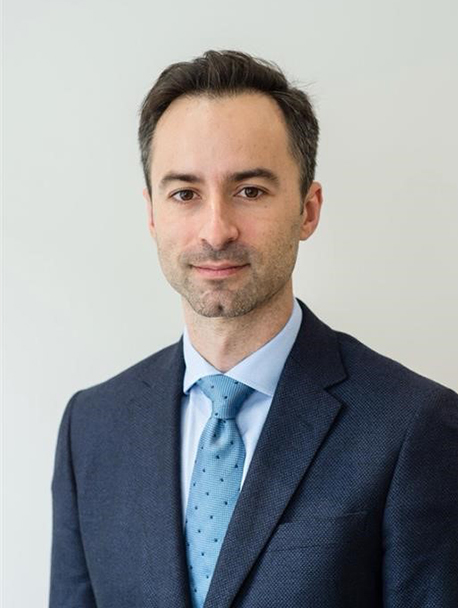
He became a Member of the Royal College of Psychiatrists in 2005 and received a Certificate of Completion of Training in General Adult and Rehabilitation Psychiatry in 2009. He trained in psychosexual and gender medicine and is a Fellow of the European Committee of Sexual Medicine, a member of the British Association of Gender Identity Specialists, the World and European Professional Associations for Transgender Health.
He is included on Her Majesty’s Government Gender Recognition Panel’s list of specialists.
Dr Sylvia Hejda-Forde is a trained Clinical Psychologist and hold the Doctorate in Clinical Psychology degree from the University College London.

She specialises in adult mental health, psychosexual problems, and gender dysphoria. She has additional training in Human Sexuality including Gender Identity issues from the European Society for Sexual Medicine, and in Couple Therapy. She is an accredited member of the College of Sexual and Relationship Therapists (COSRT) and an EFS-ESSM Certified Psycho-Sexologist (ECPS). I was accepted onto the UK government Gender Recognition Panel’s list of practitioners in the field of gender dysphoria in 2022.
Dr Hejda-Forde holds a chartered status with the British Psychological Society and adheres to their Code of Ethics and Professional Conduct. She is registered as a Practitioner Psychologist with the Health and Care Professions Council.
Dr Farah Khalid a Chartered Clinical Psychologist with the British Psychological Society (BPS) and registered with the Health and Care Professions Council (HCPC).

She received both her PhD and Doctorate in Clinical Psychology from The Institute of Psychiatry, Psychology and Neuroscience (IoPPN), King’s College London.
Having worked in both private and NHS settings (the latter being a secondary care community mental health team), Dr Khalid is experienced in providing evidence-based treatments to a range of difficulties; these include depression, anxiety, low self-esteem, psychosis, trauma and personality disorders.
Dr Tamara Anderson is an experienced HCPC registered Consultant Psychologist employed within the NHS and private practise and has been working within the mental health field for over 15 years.
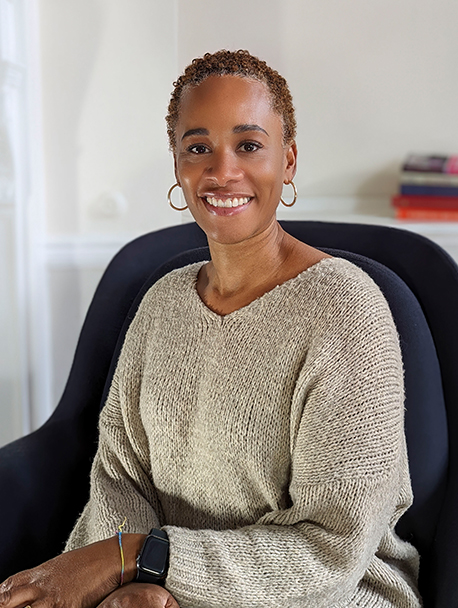
She has specialist expertise in working with complex presentations, including personality difficulties, trauma, neuro-developmental disorders and mental illness. She has a specialist interest in Transgender mental health and is a Member of the World Professional Association for Transgender Health (WPATH).
She is also a Certified Schema Therapist and is additionally trained in a number of therapeutic modalities, including Eye Movement Desensitization and Reprocessing (EMDR), Dialectical Behaviour Therapy (DBT), Mentalisation Based Treatment (MBT) and Cognitive Behavioural Therapy (CBT).
Dr Streeruwitz is a practising psychiatrist and psychoanalyst. She became a full member of the Royal College of Psychiatrists in 2006 and received her Certificate of Completion of Training in General Adult Psychiatry in 2011.

She was elected to membership of the British Psychoanalytical Society in 2016. She has a special interest in gender dysphoria.
Dr Leontis is a practising Consultant Psychiatrist with dual accreditation and training in Psychiatry of Adults of working Age and Psychiatry of Older Adults. She became a member of the Royal College of Psychiatrists in 2005 and received her Certificate of Completion of Training in General Adult and Older Adult Psychiatry in 2010.
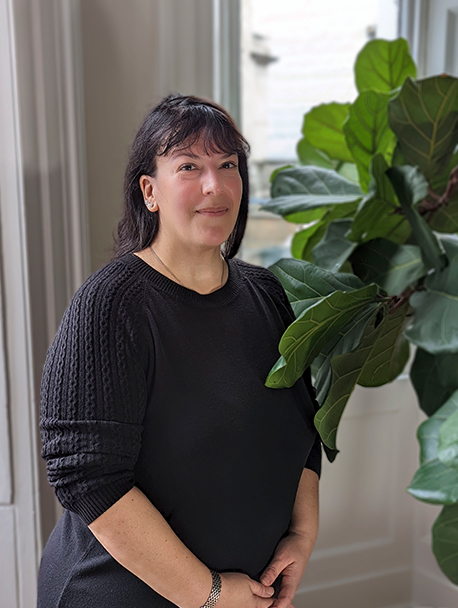
She currently works in the NHS as a Memory Assessment specialist but has a varied background of experience including in Forensic Psychiatry, Neuropsychiatry and Drug & Alcohol services. She has a special interest in gender dysphoria and am registered with the World Professional Association for Transgender Health.
What is Gender Identity?
Gender Identity is our sense of who we are and how we view ourselves. Most people identify as either “male” or “female” (known as binary identities). Some people feel that the way they identify does not fit this traditional gender binary (non-binary identity). Some people may prefer to use different terms outside the gender binary such as agender, gender diverse, enbe, bigender, gender queer and gender fluid.
What is Gender Dysphoria?
Gender dysphoria describes the sense of unease that some people feel because of a mismatch between their gender identity and the sex they were assigned at birth.
The ICD-11 definition is as follows: Gender incongruence is characterised by a marked and persistent incongruence between an individual’s experienced gender and the assigned sex.
What is the minimum age for an assessment at The Gender Clinic?
This is an adult clinic so all patients must be aged 18 or over.
How long is the waiting list?
We aim to keep this as short as possible and generally can offer appointments within two to three weeks.
Can I be assessed remotely?
All of our appointments take place remotely. We have a very limited number of appointments that can take place in person at present. Being assessed remotely does not affect the validity of your final report or recommendation.
Do you accept insurance payments?
While some providers do not cover this sort of treatment, increasingly, many do. If your provider is prepared to cover the appointment, we require your policy number and authorisation code for the appointment. The appointment can only be confirmed once we have received a Guarantee of Payment from the insurer. Alternatively, you can pay the cost of the appointment yourself and we will be happy to provide you with an invoice by which you can reclaim the cost from your insurer.
Do you offer a payment plan?
Unfortunately, we are not in a position to offer a payment plan for the appointment. Payment is required in full at the time of booking.
How long will it take for my report to be sent to me?
We aim to send a draft of your report to you within 10 working days, so usually two full weeks, of your appointment. This will give you an opportunity to ensure the report is comprehensive, accurate and true.
Is there anything I need to prepare for the appointment?
After booking we ask you to complete a pre-assessment online questionnaire and provide some form of official photo ID (passport, driving licence, CitizensCard etc). For the assessment itself, there is nothing to prepare. Our advice to patients is that they simply be open and honest. Just be yourself!
What happens after I have had the assessment?
It will take us a few days to compile your report, but once this is complete it will be emailed to you securely for you to check through and confirm that it is accurate. Then we will send it on to your hormone clinic or surgeon as well as any other parties involved in your care such as your GP. You will then be free to arrange your appointment with your clinic or surgeon as soon as possible.
Will I need a follow-up appointment?
The majority of our gender clinic patients only require one appointment. Sometimes, however, follow-up appointments are necessary, this may because the patient has a particularly complex history. It is impossible to give any guarantees that follow-ups will not be necessary until the doctor has met you.
What is “collateral history”?
As part of the assessment process, the doctor would like to speak with someone close to you and has known you well for a period of time (at least 6 months and preferably longer). This could be a friend, partner or family member for example. This is to ascertain that what has been discussed in the appointment matches other people’s understanding of your situation regarding your transition. It also helps ensure no follow ups are required. If this is problematic, please speak to our admin team regarding possible alternatives.
Can I get a surgical and hormone referral at the same time?
As they are two separate procedures, we are not able to provide a referral for both hormone treatment and surgery at the same time. Guidelines around medical transition require there to be some time between commencing different types of treatment. Providing the appropriate length of time has been taken between treatments, we will be happy to see you again for a follow-up appointment for a different referral.
Can I cancel if I change my mind?
We operate a strict cancellation policy of two working days’ notice of any changes or cancellations. As long as you let us know before two working days ahead of your appointment, we can either reschedule your appointment for a later date or provide a full refund.
I need two referrals for gender confirmation surgery (bottom surgery), can I get both from your clinic?
Yes, as long as your surgeon is happy to accept both of these from the same clinic. It is worth checking this with your surgeon ahead of booking. If you know who your surgeon is when booking in, we may be able to tell you whether they have been happy to do this for our patients in the past.
How long do I need to have been on hormones to obtain a recommendation for GCS/bottom surgery?
A minimum of 12 months of continuous hormone therapy is usually required before you can be assessed for bottom surgery.
How long is my referral valid for?
While we do not put an expiry date on our assessment reports, most surgeons or clinics, would like your referral to be within 12 months from the date of the assessment. If your report is older than this, they may request that you have a follow up appointment with us before commencing treatment.
I have an assessment report and recommendation for hormones from The Gender Clinic already, can I have a further surgical recommendation?
Yes. This will be classed as a follow up appointment. Please note, for surgical referrals, we require some time to have passed since you started hormones before providing a second recommendation.
I am applying to change my gender marker on my passport/driving license, can I get a letter to support my application?
If you already have an assessment report from us, we can provide you with this letter free of charge.
I would like to apply for a gender recognition certificate, can I get a supporting letter from the Gender Clinic?
Details on how to apply for this can be found here:
Apply for a Gender Recognition Certificate: How to apply – GOV.UK (www.gov.uk)
Please note, you will need to provide the evidence that you have been living in your experienced gender role for at least two years. Our report can be used as Medical Report A and can be attached to your application. We do not need to complete any aspect of the form on your behalf.
My priority is top surgery, do I need to be on hormones first?
Not always. While it is more typical that transgender men will have top surgery following starting on hormones, it is not always the case. Some non-binary individuals may also choose to have top surgery in the first instance. A decision regarding a recommendation is made on assessment on a case-by-case basis.
My first assessment was for hormones, how long do I need to wait before I can be assessed again with a view to obtaining a recommendation for top surgery?
Generally, our clinicians would like to see you at least four months after starting hormone therapy before they can assess you again and provide a surgical recommendation.
Do you see non-binary patients?
Yes. Our clinicians have assessed many people who identify as non-binary.
What reasonable adjustments can be made for people with disabilities?
If you have a disability and would prefer an face to face appointment, please let us know. Our consulting room at 70 Harley Street is up one flight of stairs and there is no elevator, however, an alternative room can be arranged if you have mobility issues and sufficient time is given ahead of the appointment to arrange such a space.
If you are hard of hearing/deaf, then we can arrange for your appointment to be held via Teams which has both the chat functionality and live closed captioning to help with your assessment. If you require a BSL interpreter, please note that as we are not working with the NHS or publicly funded, we cannot cover the costs of an interpreter and this would be the responsibility of the patient. We can help arrange an interpreter, should one be needed.
If you are mute, then the assessment can be completed via Teams chat; however, a follow up is likely to be needed due to the additional time needed to complete an assessment in this way.
For any other disabilities, please speak with our admin team regarding the nature of your disability and any difficulties an online or face-to-face assessment may present and we will see what adjustments we can make to ensure your assessment progresses as smoothly as possible.
Can you refer me to the NHS for either hormone treatment or surgery?
As a private clinic, unfortunately we are not able to refer any patients to NHS gender services. Currently, there are no clinics in the private sector who can refer to the NHS for gender affirming treatment, however many hormone clinics will try and set up a shared care agreement with your GP. We recommend speaking to those clinics directly for more information on how this works.
Do your clinicians assess and treat patients for other mental health conditions?
All our clinicians work in the field of general adult mental health. Our psychiatrists (Dr Popelyuk, Dr Leontis and Dr Streeruwitz) have a number of trans or non-binary patients who they treat in their general adult clinic. We can offer assessments for ASD as well as assessment and treatment for ADHD and many other mental health conditions. For more information on the work we do outside of our Gender Clinic, please look at our website at popelyuk.com
We recognise you may have more questions and our admin team would be happy to answer them and explain the finer details of how an assessment works with you over the phone.
Reach out to us on email at
and we will reach back. We respond to new enquiries within one working day and are happy to answer any questions you may have
Alternatively, you can call the clinic on
between 8am and 6pm, Monday to Friday
Our clinic address is
70 harley street london w1g 7hf.

Gender Clinics
What are gender clinics.
In the UK, people who are changing things linked to gender are supported by a set of specialist centres, often known as ‘gender identity clinics’ (GICs) or ”gender dysphoria clinics’ (GDCs), which offer formal diagnosis, psychological support, speech therapy, and access to other services like hormone medications and surgeries.
What do NHS Gender Clinics offer?
The services offered vary from clinic to clinic, but generally they offer assessment for hormone treatment and referral for gender confirming surgeries and hair removal, as well as initially monitoring hormone treatment and well-being in relation to gender dysphoria. Many GDCs offer counselling, peer support and speech therapy.
How can I access an NHS gender clinic?
Take a look at our Getting referred to a gender clinic page for more information on this .
NHS gender clinics
| Service | To be seen (in months) | To get hormones (in months) | Total wait for hormones (in months) | Referral |
| Aberdeen – | 34 | ? | ? | GP |
| Belfast – | 75 | ? | ? | GP |
| Belfast – (young people) | 24 | ? | ? | GP |
| Cardiff – | 15 | <12 | 12-25 | GP |
| Edinburgh – | 23 | ? | ? | GP |
| Exeter – | 88 | 12 | 100 | GP or self-referral |
| Glasgow – (Adults) | 65 | ? | ? | GP or self-referral |
| Glasgow – (Young People) | 58 | ? | ? | GP or self-referral |
| Inverness – | 29 | ? | ? | GP |
| East of England – (Pilot clinic) | ? | ? | ? | See their website for eligibility criteria |
| Leeds – | 58 | 10 | 68 | GP or self-referral |
| London – | 61 | 10 | 71 | GP or self-referral |
| London – (New style clinic) | ? | ? | ? | See their website for eligibility criteria |
| Manchester – (New style clinic) | 22 | ? | ? | See their website for eligibility criteria |
| Merseyside – (Pilot clinic) | ? | ? | ? | See their website for referral criteria |
| Newcastle – | ? | ? | ? | Not accepting new referrals |
| Northamptonshire – | 53 | 9 | 62 | GP or self-referral |
| Nottinghamshire – | 27 | 11 | 38 | GP |
| Sheffield – | 65 | 16 | 81 | GP |
| Sussex – (Pilot clinic) | ? | ? | ? | See their website for eligibility criteria |
| – for under 18s, coming soon | ||||
| – for under 18s, coming soon |
NHS care for under 18s
A different waiting list and referral system operates for under 18s wishing to access NHS gender services in England and Wales. There is a national waiting list for NHS Gender Services for Children and Young People – currently there are more than 5,600 people on the list. Some people have been on the waiting list since August 2018. You can find the most up to date information about the referral process on the National Referral Support Service website.
About our waiting time data
Waiting time information shown on this page is taken from information given directly to genderkit.org.uk by the services or from information published on their website. The waiting time information was last updated in April 2024. Waiting times indicate how long patients who have just been invited for an appointment have waited for. As demand is currently increasing over time, this means it is likely you will wait longer than the time shown on this page.
Transferring to a different waiting list
The following clinics will honour your original referral date if you transfer onto their waiting list. Please note, there are different arrangements for young people transferring to adult waiting lists.
- Cardiff – Welsh Gender Service
- Edinburgh – Chalmers Gender Identity Clinic
- Glasgow – Sandyford Gender Identity Clinic
- London -The Tavistock and Portman NHS Foundation Trust: Gender Identity Clinic for Adults
This information was based on information on the websites of the services when it was last checked, but you may wish to confirm what rules would apply to you by contacting the gender service yourself before arranging a transfer to them.
What is a pilot or new style clinic?
There were a number of pilot clinics in England, some of these are now out of their pilot phase. The purpose of these clinics is to explore a more holistic and comprehensive model of how gender clinics can function, with patient agency centred more in the process.
These clinics generally have a much shorter wait, but are only open to people who’ve already been referred to another clinic, and who meet particular requirements. Waits vary, usually depending on how long you’ve been on the waiting list for the other clinic.
How much will it cost?
British citizens are able to access the NHS and HSC gender services for free. If you are not a British citizen, you may still be able to access these services for free, and more details can be found on genderkit.org.uk ‘s Immigration page .
Patients in Wales being referred to gender services for children and young people will need to ask their GP to apply for funding from their local Health Board.
You may be able to get help with the cost of travelling to attending appointments at NHS or HSC gender services. Further information about travel costs can be found:
- on the NHS website (valid across the whole of the UK)
- on the Welsh Government website
- on the NGICNS website (Scotland only)
- on the HSC Northern Ireland website
More information about travel funding is also available on the London GIC website .
Where can I find more information?
https://www.nhs.uk/live-well/healthy-body/how-to-find-an-nhs-gender-identity-clinic/
https://www.ngicns.scot.nhs.uk/gender-identity-clinics/
https://clareproject.org.uk
https://www.nhs.uk/conditions/gender-dysphoria/
https://gires.org.uk
https://genderkit.org.uk/
https://www.england.nhs.uk/publication/service-specification-gender-identity-services-for-adults-non-surgical-interventions/
https://www.england.nhs.uk/publication/service-specification-gender-identity-services-for-adults-surgical-interventions/
Errors or omissions
Is there something missing from this page? Have you spotted something that isn’t correct? E-mail [email protected] to let us know.
Does something look familiar?
This page is based on information originally posted on genderkit.org.uk with permission.
A disclaimer: TransActual do not provide medical, health, or legal advice. The content of this page is intended for information purposes only. It is not a substitute for medical advice, diagnosis or treatment from a medical professional. It is not a substitute for advice from a legal professional. We strongly suggest you consult a healthcare professional or legal professional for specific advice about your situation. TransActual do not advocate or recommend the purchase of any specific product and we do not endorse or guarantee the credentials or appropriateness of any health care provider, any product or any provider of legal services.
Page last updated:
Treatment - Gender dysphoria
Treatment for gender dysphoria aims to help people live the way they want to, in their preferred gender identity or as non-binary.
What this means will vary from person to person, and is different for children, young people and adults. Waiting times for referral and treatment are currently long.
Treatment for children and young people
If your child may have gender dysphoria, they'll usually be referred to one of the NHS Children and Young People's Gender Services .
Your child or teenager will be seen by a multidisciplinary team including a:
- clinical psychologist
- child psychotherapist
- child and adolescent psychiatrist
- family therapist
- social worker
The team will carry out a detailed assessment, usually over 3 to 6 appointments over a period of several months.
Depending on the results of the assessment, options for children and teenagers include:
- family therapy
- individual child psychotherapy
- parental support or counselling
- group work for young people and their parents
- regular reviews to monitor gender identity development
- referral to a local Children and Young People's Mental Health Service (CYPMHS) for more serious emotional issues
Most treatments offered at this stage are psychological rather than medical. This is because in many cases gender variant behaviour or feelings disappear as children reach puberty.
Hormone therapy in children and young people
Some young people with lasting signs of gender dysphoria who meet strict criteria may be referred to a hormone specialist (consultant endocrinologist). This is in addition to psychological support.
Puberty blockers and gender-affirming hormones
Puberty blockers (gonadotrophin-releasing hormone analogues) are not available to children and young people for gender incongruence or gender dysphoria because there is not enough evidence of safety and clinical effectiveness.
From around the age of 16, young people with a diagnosis of gender incongruence or gender dysphoria who meet various clinical criteria may be given gender-affirming hormones alongside psychosocial and psychological support.
These hormones cause some irreversible changes, such as:
- breast development (caused by taking oestrogen)
- breaking or deepening of the voice (caused by taking testosterone)
Long-term gender-affirming hormone treatment may cause temporary or even permanent infertility.
However, as gender-affirming hormones affect people differently, they should not be considered a reliable form of contraception.
There is some uncertainty about the risks of long-term gender-affirming hormone treatment.
Children, young people and their families are strongly discouraged from getting puberty blockers or gender-affirming hormones from unregulated sources or online providers that are not regulated by UK regulatory bodies.
Transition to adult gender identity services
Young people aged 17 or older may be seen in an adult gender identity clinic or be referred to one from a children and young people's gender service.
By this age, a teenager and the clinic team may be more confident about confirming a diagnosis of gender dysphoria. If desired, steps can be taken to more permanent treatments that fit with the chosen gender identity or as non-binary.
Treatment for adults
Adults who think they may have gender dysphoria should be referred to a gender dysphoria clinic (GDC).
Find an NHS gender dysphoria clinic in England .
GDCs have a multidisciplinary team of healthcare professionals, who offer ongoing assessments, treatments, support and advice, including:
- psychological support, such as counselling
- cross-sex hormone therapy
- speech and language therapy (voice therapy) to help you sound more typical of your gender identity
For some people, support and advice from the clinic are all they need to feel comfortable with their gender identity. Others will need more extensive treatment.
Hormone therapy for adults
The aim of hormone therapy is to make you more comfortable with yourself, both in terms of physical appearance and how you feel. The hormones usually need to be taken for the rest of your life, even if you have gender surgery.
It's important to remember that hormone therapy is only one of the treatments for gender dysphoria. Others include voice therapy and psychological support. The decision to have hormone therapy will be taken after a discussion between you and your clinic team.
In general, people wanting masculinisation usually take testosterone and people after feminisation usually take oestrogen.
Both usually have the additional effect of suppressing the release of "unwanted" hormones from the testes or ovaries.
Whatever hormone therapy is used, it can take several months for hormone therapy to be effective, which can be frustrating.
It's also important to remember what it cannot change, such as your height or how wide or narrow your shoulders are.
The effectiveness of hormone therapy is also limited by factors unique to the individual (such as genetic factors) that cannot be overcome simply by adjusting the dose.
Find out how to save money on prescriptions for hormone therapy medicines with a prescription prepayment certificate .
Risks of hormone therapy
There is some uncertainty about the risks of long-term cross-sex hormone treatment. The clinic will discuss these with you and the importance of regular monitoring blood tests with your GP.
The most common risks or side effects include:
- blood clots
- weight gain
- dyslipidaemia (abnormal levels of fat in the blood)
- elevated liver enzymes
- polycythaemia (high concentration of red blood cells)
- hair loss or balding (androgenic alopecia)
There are other risks if you're taking hormones bought over the internet or from unregulated sources. It's strongly recommended you avoid these.
Long-term cross-sex hormone treatment may also lead, eventually, to infertility, even if treatment is stopped.
The GP can help you with advice about gamete storage. This is the harvesting and storing of eggs or sperm for your future use.
Gamete storage is sometimes available on the NHS. It cannot be provided by the gender dysphoria clinic.
Read more about fertility preservation on the HFEA website.
Surgery for adults
Some people may decide to have surgery to permanently alter body parts associated with their biological sex.
Based on the recommendations of doctors at the gender dysphoria clinic, you will be referred to a surgeon outside the clinic who is an expert in this type of surgery.
In addition to you having socially transitioned to your preferred gender identity for at least a year before a referral is made for gender surgery, it is also advisable to:
- lose weight if you are overweight (BMI of 25 or over)
- have taken cross-sex hormones for some surgical procedures
It's also important that any long-term conditions, such as diabetes or high blood pressure, are well controlled.
Surgery for trans men
Common chest procedures for trans men (trans-masculine people) include:
- removal of both breasts (bilateral mastectomy) and associated chest reconstruction
- nipple repositioning
- dermal implant and tattoo
Gender surgery for trans men includes:
- construction of a penis (phalloplasty or metoidioplasty)
- construction of a scrotum (scrotoplasty) and testicular implants
- a penile implant
Removal of the womb (hysterectomy) and the ovaries and fallopian tubes (salpingo-oophorectomy) may also be considered.
Surgery for trans women
Gender surgery for trans women includes:
- removal of the testes (orchidectomy)
- removal of the penis (penectomy)
- construction of a vagina (vaginoplasty)
- construction of a vulva (vulvoplasty)
- construction of a clitoris (clitoroplasty)
Breast implants for trans women (trans-feminine people) are not routinely available on the NHS.
Facial feminisation surgery and hair transplants are not routinely available on the NHS.
As with all surgical procedures there can be complications. Your surgeon should discuss the risks and limitations of surgery with you before you consent to the procedure.
Life after transition
Whether you've had hormone therapy alone or combined with surgery, the aim is that you no longer have gender dysphoria and feel at ease with your identity.
Your health needs are the same as anyone else's with a few exceptions:
- you'll need lifelong monitoring of your hormone levels by your GP
- you'll still need contraception if you are sexually active and have not yet had any gender surgery
- you'll need to let your optician and dentist know if you're on hormone therapy as this may affect your treatment
- you may not be called for screening tests as you've changed your name on medical records – ask your GP to notify you for cervical and breast screening if you're a trans man with a cervix or breast tissue
- trans-feminine people with breast tissue (and registered with a GP as female) are routinely invited for breast screening from the ages of 50 up to 71
Find out more about screening for trans and non-binary people on GOV.UK.
NHS guidelines for gender dysphoria
NHS England has published what are known as service specifications that describe how clinical and medical care is offered to people with gender dysphoria:
- Non-surgical interventions for adults
- Surgical interventions for adults
- Interim service specification for specialist gender incongruence services for children and young people
Review of gender identity services
NHS England has commissioned an independent review of gender identity services for children and young people. The review will advise on any changes needed to the service specifications for children and young people.
Page last reviewed: 28 May 2020 Next review due: 28 May 2023
Gender Identity Research & Education Society
Improving the Lives of Trans People

NHS Gender Identity Clinics
Listed below are the adult Gender Identity Clinics (GICs) in England. Patient’s have the right to choose which of the clinics they are referred to, no matter where they live ( Interim NHS England Gender Dysphoria Protocol and Guideline 2013/14 ).
There is only one service available at this time for those that are under 17: Tavistock Gender Identity Development Service, London (some satellite clinics run at the Exeter and Leeds clinics). Partial easement of the restriction on treatment to suppress puberty
Further information along with a useful selection of other information around transgender issues can be found on the NHS Choices website.
56 Dean Street London W1D 6AQ
Telephone: 020 3315 9576
Email: [email protected]
Website: https://www.wearetransplus.co.uk/
The Tavistock and Portman NHS Foundation Trust, Gender Identity Clinic, London (formerly Charing Cross)
Gender Identity Clinic for Adults 179 – 183 Fulham Palace Road London W6 8QZ
Telephone: 0208 938 7590 Website: https://gic.nhs.uk
Leeds Gender Identity Clinic, Leeds
Management Suite 1st floor Newsam Centre Seacroft Hospital York Road Leeds LS14 6WB
Telephone: 0113 855 6346 Fax: 0113 855 6483 Email: [email protected] Website: https://www.leedsandyorkpft.nhs.uk/our-services/gender-identity-service/
Northampton Gender Identity Clinic, Daventry
Northamptonshire Healthcare NHS Foundation Trust Danetre Hospital London Road Daventry Northants NN11 4DY
Telephone: 03000 272858 Email: [email protected] Website: http://www.nhft.nhs.uk/gic
Inddigo Gender Service, Manchester
City Health Centre 2nd Floor Boots The Chemist 32 Market Street Manchester, M1 1PL
Telephone: 0161 710 1196 Email: [email protected] Website: https://indigogenderservice.uk/
Northern Region Gender Dysphoria Service, Newcastle
Northumberland, Tyne & Wear NHS Foundation Trust Northern Region Gender Dysphoria Service Benfield House Walkergate Park Benfield Road Newcastle Upon Tyne NE6 4QD
Telephone: 0191 287 6130 Email: [email protected] Website: https://www.cntw.nhs.uk/services/northern-region-gender-dysphoria-service-specialist-service-walkergate-park/
The Nottingham Centre for Transgender Health
The Nottingham Centre for Transgender Health, 12 Broad Street, Nottingham, Nottinghamshire, NG1 3AL
Telephone: 0115 876 0160 Email: [email protected] Website: https://www.nottinghamshirehealthcare.nhs.uk/nottingham-centre-for-transgender-health
Porterbrook Clinic Gender Identity Service, Sheffield
Porterbrook Clinic Michael Carlisle Centre Nether Edge Hospital 75 Osborne Road Sheffield S11 9BF
Telephone 0114 271 6671 Fax: 0114 271 8693 Email: [email protected] Website: https://www.shsc.nhs.uk/services/gender-identity-clinic
The Laurels Gender Identity Clinic, Exeter
The West of England Specialist Gender Identity Clinic The Laurels 11-15 Dix’s Field Exeter EX1 1QA
Telephone: 01392 677077 Email: [email protected] Website: https://www.dpt.nhs.uk/our-services/gender-identity

The Tavistock & Portman NHS Foundation
For those who are under the age of 17 there is the Tavistock and Portman Gender Identity Development Service which is based in London but also has a satelite clinic in Leeds.
The Tavistock and Portman NHS Foundation Trust Service for children and young people with gender identity issues.
GIDS Tavistock and Portman NHS Foundation Trust 120 Belsize Lane London NW3 5BA
Telephone: 020 8938 2030/1 Email: [email protected] Website: NHS official page and http://gids.nhs.uk/

National Gender Identity Clinical Network for Scotland
The gender specialist clinics in NHS Scotland are detailed below. Referrals can be made to these clinics to explore with the service user the options available to them. Please note that Grampian and Edinburgh do not accept self-referral; referrals should be made via GP (or other health professional).
Website: https://www.ngicns.scot.nhs.uk/gender-identity-clinics/
Sandyford Clinic, Glasgow
Adult and Young Peoples Clinic 6 Sandyford Place, Sauchiehall Street, Glasgow, G3 7NB
Sandyford accepts GP and self-referrals.
Telephone: 0141 211 8130 Email: [email protected] Website: https://www.sandyford.scot/parents-sandyford/secondary/gender-identity/
Lothian Gender Identity Clinic
Chalmers Gender Identity Clinic, 2A Chalmers Street, Edinburgh, EH3 9ES
GP referrals accepted for service users residing within NHS Lothian, NHS Borders and NHS Fife areas.
Telephone: 0131 536 1570 Website: https://www.lothiansexualhealth.scot/gender-identity-clinic/
Highlands Gender Identity Clinic
Zone 14, Clinic 1 Raigmore Hospital Old Perth Road, Inverness IV2 3UJ
Telephone: 01463 888300 Website: http://www.highlandsexualhealth.co.uk/services/gender-identity
Grampian Gender Identity Clinic
Royal Cornhill Hospital, Cornhill Road, Aberdeen, AB25 2ZH
GP referrals accepted for service users residing within Grampian NHS Board area.
Telephone: 01224 557651 Email: [email protected]
Northern Ireland
Trans, non-binary and intersex people, as well as people questioning their gender, can access support and medical transition healthcare services at any age in Northern Ireland. There are currently two separate NHS services, one for children and adolescents, and one for adults. They are both based in Belfast. Website: https://belfasttrust.hscni.net/service/brackenburn-clinic/
Brackenburn Clinic (Adult services)
Shimna House, Knock Bracken Healthcare Park, Saintfield Road, Belfast BT8 8BH
Telephone: 028 9063 8854 Email: [email protected]
Knowing Our Identity (Children and Adolescents Services)
Beechcroft, Foster Green Site, 110 Saintfield Road, Belfast, BT8 6HD
Telephone: 02890 638000

The Wales Gender Team
The Wales Gender Team (WGT) is based at St David’s Hospital in Cardiff with Local Gender Teams (LGT) based in each health board in Wales. They all work together in order to provide gender care focussing on the hormonal, psychological and social aspects of gender.
Welsh Gender Service
St David’s Hospital, Cowbridge Road East, Cardiff CF11 9XB
Telephone: 029 2183 6612 Email: [email protected] Website: https://cavuhb.nhs.wales/our-services/welsh-gender-service/
Related Images:
- Skip to content
- Accessibility Help
- Individuals & families
- Intermediaries
- Healthcare professionals
- Find a healthcare professional or service
- Individuals and family I have Bupa cover or I’m insured through my employer
- Partners and Intermediaries
- Providers Online I’m a Bupa recognised healthcare professional or provider
- Bupa Connect I manage my employees' cover or business clients
- Consumer Intermediary Portal I’m an intermediary with consumer clients
f5c14aa8-f6bd-45b2-8acf-06cb974b530d-1690
- Health Insurance
Giving you choice and flexibility
- Get a quote
Health insurance specifically for business
- Leaving your company health insurance scheme?
To discuss your healthcare needs call us on
Personal 0808 271 8573 ^
Members 0330 134 5502 ^
- Making a claim
If you have Bupa health insurance, you can come to us before seeing a GP
- Get treatment
552daf5e-4b13-4b44-83be-4179e719fbba-8E48
- Bupa Dental Care
- Find a dental practice
- Ways to pay
- Bupa Smile Plan
Find information about dental symptoms
- Dental FAQs
- Dental emergency
- Parents and children
- Book an appointment
- Dental insurance
Find answers to common dental insurance questions
- Make a claim
- Common dental symptoms
- Dental professionals
Refer your patient to us for specific treatments
Look for a career with Bupa Dental Care
10b7c811-adc6-44c9-8976-b3b5a02e5adc-73E2
- Where do I start?
- Life in a Bupa Care Home
- What type of care do I need?
- Funding for care
- News and events
- Work with us
Call to find out more about care home careers 0808 231 1041
- Watch our TV advert
Call our Customer Care Team on 03456004622 ^
Arranging care can be stressful, we’re here to help. Based in Leeds, our Customer Care Team provides free advice and support whenever you need it.
- Find a care home
e9e1003b-4d11-4eb6-9c8a-f969271d2907-CBE3
- Pay as you go
- Private GP services
- Health assessments
- Targeted Cancer Screening
- Earwax removal
- Menopause treatment
- Period Plan
- Sexual health services
- Weight Management Plan
- Physiotherapy
- Muscles, bones and joints
- Cromwell Hospital
- GP subscriptions
Book a GP appointment, health assessment, sexual health check and more, at a time that suits you. Available at home or in a Bupa health centre across the UK.
Call us on 0345 600 3458
1d1aa9f5-1617-4aad-8d80-8d8f693ab02e-8B26
- Health information
Get free advice from health experts on a wide range of conditions. From causes and symptoms to diagnosis and treatment.
Keeping you up to date with the latest health and wellbeing information and trends.
Conditions, treatments and procedures
- BMI calculator
- Meniscal tear
- Pain behind the knee
- Gastroenteritis
Expert advice organised by topic
- Mental health
- Health Information
Gender transition
- Michelle Lopacki , Corporate Lead Clinician
- Dr Naveen Puri , Associate Clinical Director
- Rachael Mayfield-Blake , Freelance Health Editor
- Page last reviewed: March 2021
- Next review date: March 2024
This information is aimed at people aged 17 and older
The sex you’re said to have (assigned) when you’re born may not match the gender you identify with. This mismatch isn’t a problem. But if it makes you feel uncomfortable or distressed that’s not okay. This is sometimes called gender dysphoria or gender incongruence. If you’re feeling like this, it’s important to get help and support.
Gender dysphoria
Everyone is unique and so too are our experiences. Some people notice the misalignment between the sex they were assigned at birth and their gender identity when they’re a child. For others, it happens later when they’re a teenager or adult. The medical term for this mismatch is gender dysphoria, or gender incongruence.
You may identify with the following.
- You may feel very strongly that your gender identity doesn’t align with the sex you were assigned at birth.
- You might feel more comfortable when people treat you in line with your gender identity. For example, if they talk about you using words you prefer, such as him, her or them. These kind of words that are used instead of your name are called pronouns.
- You may feel uncomfortable and have a strong desire to hide or change characteristics that associate you with the sex you were assigned at birth. For example, your chest, genitals, body hair or voice.
People who identify as non-binary can experience these feelings too. If you identify as non-binary, you may feel that your gender identity falls between the binary model (for example, boy and girl, or man and woman), or outside of them completely. You may identify as having no gender or a different gender completely. Your gender identity may also be fluid, fixed or change over time.
Help and support
If you feel that your gender doesn’t match the sex you were assigned at birth you might need some support. You may find it helps to talk to someone you trust at first, such as friends or family. Or you could speak to a counsellor, or your GP. You can take someone along to your appointment if you’ll feel more comfortable.
Your GP can help you to access services and support in the best way possible. They’ll talk to you about how you’ve been feeling and may do a general check-up to prepare for any future treatment.
It helps to prepare for your appointment. You might want to think about what type of care you feel would help you. For example, you might be interested in hormone therapy or mental health support. Not all GPs have experience of gender dysphoria and gender transition so don’t be afraid to lead the conversation around how you want to be addressed and any other needs.
If you don’t feel that your GP can help you, make an appointment to see a different doctor. You could also try contacting a charity or organisation that can help you to access the care you need. Some of these are listed at the bottom of this page.
You might also find it helps to speak to people in a similar situation to yourself through online or offline peer-to-peer support groups. If your feelings are affecting your mental health, there is support available. See the section Mental health support below for more information on these services.
Gender dysphoria clinics (GDC)
Your GP may refer you to an NHS Gender Dysphoria Clinic (GDC). You might have also heard these called Gender Identity Clinics (GICs). A GDC includes a team of health professionals from a range of specialists who can help you. These include:
- endocrinologists (hormone therapy experts)
- sexual health physicians
- speech and language therapists
- psychologists
- counsellors
Other health professionals such as psychologists, psychiatrists or a sexual health centre can also refer you to a GDC.
The clinic can help you to access specialist advice and care and discuss your needs and options going forward. But, while these services are available, the reality is that access to GDC services can be limited. There will likely be a very long waiting list. If you’re able to, you can also refer yourself and pay to access private gender specialist services.
Deciding to transition
There are lots of things you can do that might help you to feel more comfortable in yourself. What works for one person, might not work for another, and you might not want to make any changes at all. It’s your decision to make. Take your time, explore your options and make a decision that’s right for you.
This is the process of changing certain things about yourself to help you feel closer to the gender you identify with and is sometimes called transitioning. Transitioning is different for everyone, and it can include medical and non-medical options.
Non-medical options include:
- changing your name
- using pronouns that better reflect your gender identity, such as he/his, she/her, or non-binary pronouns like them/their or ze/hir
- changing how you dress, use make-up or wear your hair
- changing your voice and mannerisms
Medical options include:
- taking hormone therapy
- having surgery
Non-medical transition
There are lots of non-medical ways to change the way you express your gender. You might choose to do one or all of these. You might also choose to medically transition as well. Usually, you’ll be expected to make some non-medical changes first.
Changing your legal gender
You can apply for a Gender Recognition Certificate (GRC) to legally change your gender once you meet certain criteria. Contact Citizens Advice if you need help with the process. It’s quite easy to change your name by deed poll and once it’s done, you can change your gender on identity documents, such as your passport and driving licence . You can change your name at any time, without meeting any criteria first.
Modifying your body shape
There are several stores that specialise in creating garments for transgender and non-binary people to change their body shape. For example, you may want to flatten your chest with a breast binder or chest tape. You can also buy breast forms and genital packers.
Although wearing these things can help your mental wellbeing, some of them can also cause physical symptoms. For example, using a chest binder can cause pain in your back and chest, and shortness of breath.
Research around binding is limited – there aren’t any official, evidence-based guidelines, but you may find it helps to take days off from binding. If you’re considering it, speak to a medical professional about the risks, benefits and actions you can take to reduce the chance of any problems.
Sometimes you might be able to find lower cost or even free binders from local charities and organisations that support transgender and non-binary people.
There are lots of different ways to remove or reduce any unwanted body hair. Some of these you can do yourself at home, such as shaving, waxing or using hair removal cream. You can also see a trained professional by visiting a beauty salon. This can sometimes be safer and less painful than trying to do it yourself.
You might find it stressful to go to a salon for the first time. Some charities and organisations list beauty salons that are welcoming to transgender and non-binary people so that you can feel safe and secure when you’re booking an appointment.
For longer-term hair removal there are also treatments such as electrolysis and laser treatment.
Help with hair pieces, transplants and wigs is also available. Ask your GDC for advice.
Changing the way that you speak
For some people, the tone or depth of their voice causes them to experience gender dysphoria. Speech and language therapy (SLT) can help you learn and practise changes in the way you speak and communicate. This is also sometimes called voice and communication therapy. Your GDC, and possibly your GP, can help with a referral to see a speech and language therapist. This might be one to one, as part of a group, or you can pay to see them privately.
Hormone therapy
Hormone therapy is when you take specific hormones designed to enhance certain characteristics. This is one of many gender affirming medical treatments available.
There are lots of different types of hormones that have different jobs around your body, but the ones involved here are your sex hormones. In general, testosterone is known as the ‘male’ sex hormone and oestrogen as the ‘female’ sex hormone. These hormones produce changes in your body during puberty. These include developing breasts or facial and body hair, and changes to your voice and body shape.
Your doctor may also prescribe you hormone ‘blockers’ to stop your own body from producing hormones so the prescribed hormones can work better.
The aim of hormone therapy is to suppress your current sex characteristics and enhance those of the gender you identify with. This may make you feel more at ease with yourself, both physically and psychologically.
The type and dose of hormone therapy differs from one person to the next. It’ll depend on things like:
- the effect you want to achieve
- if you have any underlying medical conditions
There are also different ways that you can take hormone therapy, which include tablets, gels, patches and sprays. The way you take your hormones might change over time. Your doctor should monitor your progress regularly.
Below is information about the results you may see if you start hormone therapy. You can alternatively download Bupa's Effects of hormone therapy document (PDF, 0.1 MB). But it’s important to remember that everybody is different and will respond to hormone therapy in different ways. If you have any concerns about the effect your hormone therapy is having, then speak to your GP.
Transmasculine hormone therapy
Using hormone therapy to make your body appear more masculine can involve:
- testosterone hormones to enhance what are traditionally considered more ‘masculine’ (male) characteristics
- blocker medicines, such as goserelin, leuprorelin or cyproterone acetate to suppress (slow down) the release of oestrogen into your body
Below we outline some of the effects and approximate timescales of hormone therapy. Some changes may be permanent, while others can be reversed. So, make sure you discuss your treatment fully with your doctor before you begin.
| Effects of hormone therapy | When you may start to see a change | How long it may take to get the full effect |
|---|---|---|
| Oily skin, and possibly acne (you may have acne for up to a couple of years) | 1-6 months | - |
| Hair growth on your face and body increases | 3-6 months | 3-5 years |
| Balding (this will vary and depends on factors such as your age and genes) | >12 months | - |
| Increased muscle and strength (this will depend on how much exercise you do) | 6–12 months | 2–5 years |
| Fat is redistributed (less fat on your hips and thighs and more around your stomach) | 3-6 months | 2–5 years |
| Changes in your menstrual cycle and decreased fertility (this can affect your chances of conceiving in the future) | 2–6 months | - |
| Your clitoris gets bigger | 3–6 months | 1–2 years |
| Changes in your vagina, such as dryness and thinning of the vagina wall | 3–6 months | 1–2 years |
| Voice gets deeper | 3–6 months | 1–2 years |
Transfeminine hormone therapy
Using hormone therapy to make your body appear more feminine can involve:
- oestrogen hormones to enhance traditionally more ‘feminine’ characteristics
- blocker medicines, such as goserelin and leuprorelin, to suppress (slow down) the production and function of some hormones, mainly testosterone. While testosterone is part of a wider group of hormones called androgens. So, you might hear these medicines called anti-androgens.
| Effects of hormone therapy | When you may start to see a change | How long it may take to get the full effect |
|---|---|---|
| Fat is redistributed to your hips and thighs | 3–6 months | 2–5 years |
| Muscles and strength decreases (this will depend on how much exercise you do) | 3–6 months | 1–2 years |
| Skin becomes soft and less oily | 3–6 months | Unknown |
| Libido (sex drive) decreases | 1–3 months | 1–2 years |
| Random erections become less common | 1–3 months | 3–6 months |
| Difficulty getting an erection and/or difficulty ejaculating | Variable | Variable |
| Breast growth | 3–6 months | 2–3 years |
Risks of hormone therapy
Your doctor will talk to you about the risks and benefits of different hormone therapy. Depending on what you want to achieve and your personal situation, you may need to take hormone therapy for the rest of your life.
Among other things, hormone therapy can potentially cause problems with your heart and circulation and increase your risk of certain cancers. It’s important to discuss these risks with your doctor so you have the information to consent to the therapy if you decide to go ahead. No hormone medicine is completely safe – they all come with an element of risk. But there are things you can do to help improve your chances of staying safe and well. For example, stay a healthy weight and don’t smoke .
Your healthcare team will regularly monitor your health while you take hormone therapy.
Buying medicines online
It’s important to get medical support with hormone therapy. While you can buy hormones online or from other outlets, it can be dangerous. Your GP can arrange a referral for you to discuss and access hormone treatment safely at a GDC. While it may take time to get an appointment, it’s worth the wait to ensure you get safe care.
Your GP may be able to give you what’s called a ‘bridging prescription’, while you wait to access specialist care. This will give you the option to start you treatment while you wait to be seen at a GDC.
Having children
If you would like to have children in the future, tell your doctor before you start hormone therapy. You may be able to store your eggs or sperm. Your GDC team can give you advice about your options and next steps.
Adoption and fostering are other routes to consider if you want to have children in future. UK law supports the lesbian, gay, bisexual and transgender (LGBT) community when it comes to adoption, whether you’re in a relationship or doing it alone. Organisations such as New Family Social can provide further information and support if you need it.
There are different types of operations that may help you to feel closer to your gender identity. What, and how much surgery you have, is up to you. Surgery is part of medically transitioning.
If you choose to have surgery, your healthcare team – including your surgeon and mental health professionals – will discuss your options with you. Together, you can decide what’s right for you. Before you go ahead with any procedures, they’ll make sure that you’re well enough both physically and mentally to have the surgery. Depending on the type of surgery, you may need one or two referrals from a mental health professional.
Your healthcare team will make sure you have all the information you need to give your informed consent for a procedure to go ahead. This will include information on the risks and benefits. If you have any doubts, talk to your surgeon and don’t be afraid to change your mind. This is your decision, so make sure that you feel comfortable with it.
Breast or chest surgery
You can have surgery to:
- masculinise your chest, for example by removing your breasts (mastectomy) – this is often known as ‘top surgery’
- feminise your chest, for example by enhancing or creating breasts – this is also called a breast augmentation
Genital surgery
Genital surgery is also known as gender affirmation surgery. You might sometimes hear it called gender reassignment surgery (GRS).
You may also hear people referring to this type of surgery more generally as ‘bottom surgery’. There are lots of different types and what you have done will depend on your personal situation and goals.
If you were assigned female at birth, you may have the following.
- Surgery to remove your womb (a hysterectomy) and ovaries (ovariectomy, also known as oophorectomy).
- Surgery to remove and/or seal your vagina (vaginectomy).
- Surgery to create a scrotum (scrotoplasty).
You can also have surgery to create a penis. Speak to your surgeon about which type of surgery would be best for you. There are two main types.
- Metoidioplasty (‘meta’ surgery) or phalloplasty, which involves creating a penis from your clitoris. The penis will be small and will depend on how large your clitoris grew following hormone therapy. Your surgeon can add tissue to increase the length and the girth.
- Phalloplasty involves using donor skin (a graft) from another part of your body, for example your forearm, to create an entirely new penis. Some surgeons can leave your clitoris uncovered to make sexual stimulation easier after your operation.
If you were assigned male at birth, you can have surgery to remove your penis (penectomy) and testicles (orchiectomy), and to create:
- a vaginal opening (vaginoplasty)
- the outer part of the genitals (the vulva and labia) known as a vulvoplasty
- a clitoris (clitoroplasty)
Other procedures
There are also many other surgical and cosmetic options, such as:
- facial feminisation surgery (FFS) which can change features, such as the shape of your jaw, Adam's apple, and hair line
- liposuction and lipofiling
- injectable fillers which can enhance features such as your lips, cheekbones, and jawline
- hair transplants to replace hair loss or change your hair line
- tattooing to increase your nipple size, enhance your eyebrows or create make-up effects
- changing the shape of an area of your body such as your waist or chest
- voice feminising surgery to change the pitch and tone of your voice
Supporting your mental health
If you feel uncomfortable with your gender, it can affect your mental health. Or you may experience mental health symptoms because of how society perceives you. You might also experience upsetting reactions from your family or friends. If your feelings are affecting your mental health, your GP can refer you to a mental health professional.
Ask if they have experience in working with transgender people. There are specialists available. You can also access these services yourself without seeing a GP first. Organisations such as Gender Identity Research & Education Society can help you to find someone.
Mental health professionals can help you to understand the different types of gender identity and explore your own. They can also help you with coming out to family and friends . Their goal is to help you to feel comfortable and equipped to deal with challenges and thrive going forward.
Mental health professionals may use talking therapies, such as cognitive behavioural therapy (CBT) or psychotherapy to help you. They can also help you if you have anxiety and depression , or any other mental health problems. They also play an essential role in assessing your mental wellbeing before your doctor refers you to a specialist, for example an endocrinologist for hormone therapy.
Your gender identity is your sense of your own gender. This may or may not match the sex you were assigned (given) when you were born. You might identify as male, female, non-binary, or another gender. Gender identity and gender expression are different. You can’t assume someone’s gender identity purely based on the ways they express themselves, such as what they wear or how they talk. A person’s gender also shouldn’t be confused with their sexual orientation (who they are sexually attracted to).
We don’t know exactly how many people experience gender dysphoria, but it’s safe to say that you’re not alone. We do know that we have data suggesting there are around 200,000 to 500,000 transgender people in the UK. But it’s likely that this figure is an underestimate. We also know that there are currently thousands of referrals to gender identity clinics (GICs) being processed.
Transitioning means changing the way you present yourself to match the gender you identify as. You can do this by changing the way you dress, or with medicines and surgery. But transitioning doesn’t always have to be a physical or outside change; it can be a mental affirmation too. For more information about transitioning see our section ‘Help and support’.
Did our Gender transition information help you?
We’d love to hear what you think. ∧ Our short survey takes just a few minutes to complete and helps us to keep improving our health information.
∧ The health information on this page is intended for informational purposes only. We do not endorse any commercial products, or include Bupa's fees for treatments and/or services. For more information about prices visit: www.bupa.co.uk/health/payg
This information was published by Bupa's Health Content Team and is based on reputable sources of medical evidence. It has been reviewed by appropriate medical or clinical professionals and deemed accurate on the date of review. Photos are only for illustrative purposes and do not reflect every presentation of a condition.
Any information about a treatment or procedure is generic, and does not necessarily describe that treatment or procedure as delivered by Bupa or its associated providers.
The information contained on this page and in any third party websites referred to on this page is not intended nor implied to be a substitute for professional medical advice nor is it intended to be for medical diagnosis or treatment. Third party websites are not owned or controlled by Bupa and any individual may be able to access and post messages on them. Bupa is not responsible for the content or availability of these third party websites. We do not accept advertising on this page.
- Gender Identity Clinic (GIC)
- The Clare Project
Discover other helpful health information websites .
- Supporting transgender and gender-diverse people. Royal College of Psychiatrists. www.rcpsych.ac.uk, reviewed April 2021
- Gender identity and gender dysphoria. Oxford handbook of psychiatry. Oxford Medicine Online. oxfordmedicine.com, published online June 2019
- Gender dysphoria. Garg G, Elshimy G, Marwaha R. www.ncbi.nlm.nih.gov, last update 20 July 2021
- Gender dysphoria. Patient. patient.info, last edited 14 May 2018
- Non-binary inclusion. LGBT Foundation. lgbt.foundation, accessed 31 August 2021
- Managing patients with gender dysphoria. British Medical Association. www.bma.org.uk, updated 12 August 2021
- Personal communication, Michelle Lopacki, RGN, Corporate Lead Clinician, UK Insurance, 14 October 2021
- Gender pronouns. Lesbian Gay Bisexual Transgender Queer Plus (LGBTQ+) Resource Center. uwm.edu, accessed 31 August 2021
- Personal communication, Dr Naveen Puri, Associate Clinical Director, and Lead Medical Appraiser, Bupa Global & UK, 20 December 2021
- Apply for a gender recognition certificate. GOV.UK. www.gov.uk, accessed 31 August 2021
- Change the name or gender on your driving licence. GOV.UK. www.gov.uk, accessed 31 August 2021
- Applying for a passport – information for transgender and transsexual customers. GOV.UK. www.gov.uk, published 15 August 2013
- Change your name by deed poll. GOV.UK. www.gov.uk, accessed 31 August 2021
- Marks DH, Hagigeorges D, Manatis-Lornell AJ, et al. Excess hair, hair removal methods, and barriers to care in gender minority patients: a survey study. J Cosmet Dermatol 2020; 19(6):1494–98. doi: 10.1111/jocd.13164
- Endocrine system anatomy. Medscape. emedicine.medscape.com, updated 29 June 2016
- Endocrine system anatomy. Gross anatomy. Medscape. emedicine.medscape.com, updated 29 June 2016
- Normal puberty. Oxford handbook of endocrinology and diabetes. Oxford Medicine Online. oxfordmedicine.com, published online March 2014
- Standards of care for the health of transsexual, transgender, and gender nonconforming people. World Professional Association for Transgender Health. www.wpath.org, updated 2012
- Child adoption. GOV.UK. www.gov.uk, accessed 4 October 2021
- Lesbian, gay, bisexual or trans (LGBT+) and thinking about adoption? First4adoption. www.first4adoption.org.uk, accessed 6 September 2021
- Phalloplasty. Formation of the phallus. St Peter's Andrology Centre London. www.andrology.co.uk, accessed 1 September 2021
- Healthcare for transgender and gender diverse individuals. American College of Obstetricians and Gynecologists. www.acog.org, published March 2021
- Wellbeing. Stonewall. www.stonewall.org.uk, published 5 June 2020
- Busa S, Janssen A, Lakshman M. A review of evidence based treatments for transgender youth diagnosed with social anxiety disorder. Transgend Health 2018; 3(1):27–33. doi: 10.1089/trgh.2017.0037
- Written evidence submitted by GIRES to the transgender equality inquiry. Gender Identity Research and Education Society. parliament.uk, published 2015
- Glossary of terms. Stonewall. www.stonewall.org.uk, accessed 5 October 2021
- Gender identity services for adults (non-surgical interventions). NHS England. www.england.nhs.uk, published July 2019
- Trans healthcare. General Medical Council. www.gmc-uk.org, accessed 29 October 2021
- Trans people in the UK. Government Equalities Office. www.gov.uk, published 2018
- WHO/Europe brief – transgender health in the context of ICD-11. World Health Organization. www.euro.who.int, accessed 1 April 2022
- Non-Binary Inclusion. LGBT foundation. www.lgbt.foundation, accessed 1 April 2022
- Gender Identity Clinic. NHS. www.gic.nhs.uk, accessed 1 April 2022
- How to gain the appearance of a flat chest. Gendered Intelligence. www. genderedintelligence.co.uk, last updated 2015
- Waiting times. NHS. www.gic.nhs.uk, accessed 1 April 2022

Our information has been awarded the PIF tick for trustworthy health information.

Gender Hormone Therapy
Embrace Your Journey, Empower Your Transition
The Gender Hormone Clinic
At The Gender Hormone Clinic our aim is to provide affirmative, patient centred gender hormone therapy led by our expert nursing team and multi disciplinary team of psychiatrists, psychologists and specialist surgeons for transgender, non binary and intersex individuals.
Lead clinician Mary Burke (RN NMP) has worked within NHS services for over 30 years accumulating an extensive knowledge base working for many years in general practice, midwifery, family planning, women’s health in the menopause and body identical hormone therapy. She leads our team of expert nurses, all of whom are passionate about providing the absolute best individualised care possible for the community.
Meet Our Nurses
How our service works.

Make an Enquiry
Retrieve a referral from a gender psychologist/ psychiatrist.
Once you complete step 1 we can provide you with a list of available clinicians for you to contact and arrange your appointment. It will be your decision to choose which gender psychologist / psychiatrist you would like to see. Please arrange this appointment directly with the gender psychologist / psychiatrist.
Initial Video Appointment
Once your referral has been received, you can now book in directly with our team via the online booking form on our website. During your initial video appointment, your nurse will go through your medical history and talk you through the initial stages of your hormone care. This is where you will have a chance to ask any clinical questions about your care and discuss your goals for hormone therapy.
Typically your nurse will then book your face-to-face physical examination, during which your treatment plan will be established.
Complete and Return Your Medical Forms
Once we have booked face to face appointment, we will send you several essential forms to read and sign. Please read these carefully, sign, and return to us as soon as possible. Any delays may unfortunately result in rescheduling your appointment to a later date.
Please remember to organise your blood tests now if you have not already done so. For the full list of blood tests visit our page here . Once your initial in clinic appointment is booked, you will receive a confirmation email with a link to a digital blood results form . This is where you will be able to upload a copy of your results straight onto your record.
In Clinic Appointment
All there is left to do now is attend your in clinic appointment! Your in clinic appointment will take place at our consultation rooms in Fitzrovia Hospital where, if no contra-indications are identified, you will be provided with a prescription to commence hormone therapy.
Initial Consultation
Medical consultation, certified. responsive. compassionate..

“Our aim is to provide patient centred, affirmative trans healthcare to patients of any gender.
We pride ourselves on being an inclusive service tailored to the goals and needs of each individual persons transition. Meeting our patients in clinic as they progress is so rewarding, they inspire us everyday.”
Follow Us For Updates
@thegenderhormoneclinic.

Join Our Care

Providing affirmative, patient centred gender affirming hormone therapy led by our expert nursing team and multi disciplinary team of psychiatrists, psychologists and surgeons.
Take a tour around Fitzrovia Hospital !
Contact Information
- Phone: +(44) 7403 925117
- Mail: [email protected]
- Address: The Fitzrovia Hospital 13-14 Fitzroy Square London W1T 6AH

Chelsea Centre for Gender Surgery
Chelsea and Westminster Hospital is commissioned by NHS England to provide masculinising lower surgery, masculinising top surgery and lower feminising surgery. Further information on these new services will be published shortly.
Chelsea and Westminster has launched its values to patients and members of the public to demonstrate the standard of care and experience they should expect from our service:
Putting patients first
Responsive to patients and staff, open and honest, unfailingly kind, determined to develop.
Gender surgery patient information
Getting ready for surgery
The information provided is a general overview of what to expect before your surgery date. Exact information around preoperative appointments and preparations will be provided once a referral has been accepted.
Your surgery day and stay
Resources and information will be provided to help with your arrival at the hospital and your stay with us.
Aftercare following surgery
The information provided is a general overview of what to expect after your surgery. We have a multidisciplinary team who are available to provide tailored aftercare and advice.
Gender surgery options
Content Warning : the content below uses some anatomy/biological terms where it’s important to be precise.
A metoidioplasty is an operation that results in the creation of a small Neophallus, by straightening and lengthening a hormonally enlarged clitoris.We also offer the option of simultaneously having a laparoscopic hysterectomy which is keyhole surgery involving the removal the womb (uterus), including the neck of the womb (cervix) and salpingo-oophorectomy (removal of the fallopian tubes and ovaries).
We are setting up provisions to provide phalloplasty and further information on this surgical provision will be published shortly.
Lower feminising surgery can include multiple options. This can be orchidectomy, vaginaplasty, vulvoplasty and cliteroplasty. It is important to be aware that feminising genital surgery is not reversible, therefore you need to consider all the options available before you make this important decision.
We are setting up provisions to provide masculinising top surgery and further information on this surgical provision will be published shortly.
Arriving for your surgery
Watch our video showing your journey through the hospital on your day of surgery.
Watch the video
Advice, support and referral information
Patients help and advice.
Helplines as well as guidance and advice for patients.
Advice for friends, family and carers
Information for visiting patients in hospital and our pledge to you as a carer.
Health professionals, advice and further info
Advice for Primary Care Providers and guidance supporting transgender patients.
Referral criteria and GDNRSS Hub
Advice for referrals to our service and information about the Gender Dysphoria National Referral Support Service (GDNRSS).
Frequently asked questions
Yes, you will need to be referred through an NHS Gender Dysphoria Clinic - How to find an NHS gender dysphoria clinic - NHS (www.nhs.uk) . We are following pathways laid out in the NHS Service Specification for Gender Identity Services for Adults (Surgical Interventions).
Initially, the service is only offering metoidioplasty +/- urethral lengthening with the option of simultaneously having a laparoscopic hysterectomy (a minimally invasive keyhole approach). We are setting up provisions for phalloplasties and further information on this surgical provision will be published shortly.
We follow national requirements around waiting list management but cannot provide wait list times whilst we are in the initial stages of the service.
It is recommended for your BMI (Body Mass Index) to be 30 or less for the operation to achieve the best outcome. This will be discussed further during your clinical consultation.
Chelsea and Westminster Hospital NHS Foundation Trust has been commissioned to provide masculinising surgery for transmasculine and nonbinary patients.
The Trust is proud to be the first NHS hospital site to perform this life-saving operation. We will work closely with NHS England and the Gender Dysphoria National Referral Support Services (GDNRSS) to prioritise those who have been waiting the longest. Our service has been created with the belief that patients should be provided with the care they need in a compassionate and timely manner. As a team, we have worked hard to build our service and are working even harder to continually improve and grow so we are able to offer our services in a timely manner.

You are here: Home > Services > Surgery services > Chelsea Centre for Gender Surgery (CCGS)
Chelsea Centre for Gender Surgery (CCGS)
Our Trust has been commissioned by NHS England to provide lower masculinising surgery (metoidioplasty and phalloplasty,) lower feminising surgery and masculinising top surgery. The Chelsea Centre for Gender Surgery is passionate about helping patients alleviate their gender dysphoria. We work with service specialists and the transgender community to deliver a high quality, patient centred service, supporting patients through their surgical journey.
The Chelsea Centre for Gender Surgery service is based at the St Stephen Centre at our Chelsea site.
Get in touch
For more information, please visit the Chelsea Centre for Gender Surgery microsite. You can also contact us on the below email address. E: [email protected]
Gender reassignment surgery Specialists in London
Experts available in:
Treatments / Tests / Illnesses
Doctor's name / Centre / Clinic
Popular specialties
New medical centres
New dental clinics
Most popular specialities
Most popular treatments

Mr Gerogiannis, Ioannis General, Gastrointestinal and Bariatric Surgeon

Mr Goddard, Martin Orthopaedic surgery

Dr Vowler, Amy GP (general practitioner)

Mr Hansom, J Donald Consultant Orthopaedic Hip and Knee Surgeon

Dr Holden, Wendy Consultant Rheumatologist

Yorkshire Skin Centre

GyneClinics

London Bridge Therapy

One To One Dental Clinic (121)

Hinchley Medical

Forest & Ray - Dentists, Orthodontists, Implant Surgeons

Bespoke Dental Fulham

Mona Lisa Smiles

3 Step Smiles Dental Practice Liverpool

3 Step Smiles Dental Practice Glasgow
Most popular cities
Greater Manchester
Southampton
Most popular health insurance
Without medical insurance
Alliance Health Group
Benenden Health
General Medical
Pago en consulta del doctor Consulta privada sin seguro
Prepay for your appointment (Pago con tarjeta de crédito)

Payments for pre-paid services
Benefit from the advantages of using the Top Doctors pre-payment system
Preferential prices
Flexible agenda
Easy access
Pay by card
Doctor’s gender
Por favor, realice una nueva búsqueda para aplicar filtros

Mr Ardeshir Vahidi
Plastic surgeon.

Miss Tina Rashid
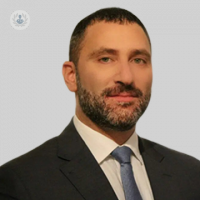
Mr Giangiacomo Ollandini
Consultant urological surgeon.
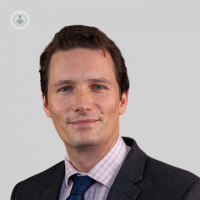
Mr Rufus Cartwright
Gynaecologist.
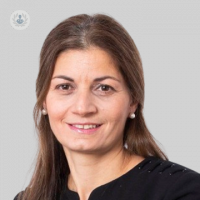
Ms Eleni Mavrides
Consultant in obstetrics and gynaecology.

Mr Georgios Pafitanis

Mr Alexander Armstrong
Consultant plastic, reconstructive and hand surgeon.
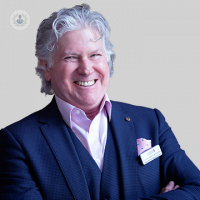
Mr Christopher Inglefield

Dr Stefano Cotrufo
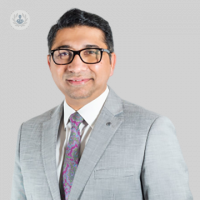
Mr Amer Raza
Obstetrician - gynaecologist.

Cookie settings
You can enable or disable according to the purposes:
- Electrolysis
- Gender Reassignment
- Phallus & Labia Tattooing
- Testimonials

- Sara Thomas BTEC HND, C&G, M.B.I.A.E
- Phone: 07930 420506
- Email: [email protected]
- Sara can be contacted by telephone between 9am and 6.30pm (Mondays to Thursdays). Sara is unavailable to take calls outside these times.

Treatment Locations
Sara runs her private practise from Kenton, near Harrow, Middlesex, within a friendly and pleasant home environment. Additionally, Sara is available at The Gender Identity Clinic in London NW3. See below for details.
- 34 Ilmington Road,
Treatment hours: Mon-Thurs 8.30-5pm
- Tavistock and Portman Gender Identity Clinic
- Lief House,
- 3 Sumpter Close,
Treatment hours: 2nd Monday a month 9-4.30 pm

Gender Reassignment in London
Please note that no analytical tracking tools are used on this website. Any shared data will be treated with strict confidentiality.
https://www.gosh.nhs.uk/wards-and-departments/departments/clinical-specialties/the-nhs-children-and-young-peoples-gender-service-london/
The NHS Children and Young People’s Gender Service (London)
The NHS Children and Young People’s Gender Service (London) is a partnership between Evelina London Children’s Hospital (part of Guy’s and St Thomas’ NHS Foundation Trust), Great Ormond Street Hospital for Children NHS Foundation Trust, and South London and Maudsley NHS Foundation Trust.
Together we are commissioned by NHS England to provide specialist gender-related care and support for children and young people. Our organisations exist to help children and young people with complex health needs. This important service will deliver quality care and support to children and young people.
Our service carries out assessments with each child or young person we see. The service supports mental and physical health, including emotional, psychological and social aspects.
Every child and young person we see will have a team of specialist health professionals, and together they will develop a personalised care plan. Families and/or carers will be involved and supported appropriately.
Our approach is to deliver the best possible care and advice for children and young people, in line with NHS guidance and informed by research.
About the service
The team delivering the service made up of physical and mental health professionals, as well as occupational therapists, social workers, youth workers, family therapists, and speech and language therapists.
As with any specialist service, children and young people will continue to need support from local services, including GPs, other health and social care professionals, voluntary sector services and mental health teams.
Referral Information
Initially the service will focus on the safe transfer and care of children and young people who were under the care of the Tavistock and Portman NHS Foundation Trust’s Gender Identity Development Service, which was previously the only NHS provider of gender services for young people.
NHS England currently propose that this service is for children and young people between the ages of seven to 17 (up to their 18th birthday). People on the waiting list will be transferred across to new regional centres as soon as appointments become available.
To make a referral to the service please visit the NHS Arden and Greater East Midlands Commissioning Support Unit website or contact them via email [email protected] or telephone 01522 857799 .
Need urgent mental health support?
Contact your local crisis care service if you need urgent support.
To ask a question about your appointment, please contact the service using the email address [email protected] . If you need to speak to someone about your appointment, please phone 01522 857799 .

Welcome to the
Harley street gender clinic, "authenticity is the soul made visible.", providing guidance, support and treatment toward authentic gender expression.

HCPC Registered PYL37023

A WPATH Full Member

BPS Registered

A BAGIS Full Member

A Royal Society of Medicine Member
Insurers we work with.
Dr Vickie Pasterski
Gender Specialist
Specialising in gender related care for over 20 years
PhD, Behavioural Neuroendocrinology
MA, Counselling Psychology
BA, Psychology
Postdoctoral Certificate
2 year training program in
Gender Identity Assessment
Psychobiological Sciences
Columbia University Medical School, NY, New York &
New York State Psychiatric Institute, NY, New York
Health & Care Professions Council (HCPC)
Registered No. PYL 37023
Associate Fellow (AFBPsS) Registered Chartered Psychologist (CPsychol) British Psychological Society Registration No. 188613
Recognised Gender Specialist Gender Recognition Panel Ministry of Justice, UK
WPATH Full Member
About Dr Pasterski
Dr Pasterski is a Gender Specialist with more than 20 years of clinical and research experience. She earned a PhD in Behavioural Neuroendocrinology in 2002 from City, University of London, and completed a further two years of postdoctoral training in Gender Identity Assessment with the Psychoendocrine Clinic, Columbia University Medical Center and New York State Psychiatric Institute, New York. She has been a member of various multidisciplinary networks throughout Europe and within the NHS, an Affiliated Lecturer in the Department of Psychology, University of Cambridge, and is a Recognised Gender Specialist by the UK Ministry of Justice Gender Recognition Panel.
Our Services
Referral for hormone therapy, referral for gender affirming surgery, support/guidance in planning for gender transition, reports for name/gender marker change in passports , reports for gender recognition certificate (grc) applications, supporting the young person (under 18's), mentoring with shay, (existing patients), register with us, we are pleased to support you on your journey, no matter which stage you are at in your transition process. please click below to complete the form to register with our clinic, where your patient file will be created. we will get back to you via email to arrange your initial assessment., document upload.
If Dr Pasterski has requested for you to upload your personal information and documents, please click below to upload.
Reviews & feedback.

"Dr Pasterski was so kind and treated me like a human being. She was genuinely concerned with what I needed and did not force me to fit some idea of who someone else would want me to be."
Gaynor's story.

Gaynor's story is just one of many patient stories that we have had the pleasure of hearing.
Read her in depth account of her journey and experiences.
Get in Touch
10 Harley Street
United Kingdom
0207 467 8325
Nearest tube stations: Oxford Circus, Bond Street and Regents Park

Get in touch with us to learn more about our services
Please check that your contact details are correct so that we are able to respond to your message.
Thank you, we'll be in touch with you soon!

Gender Care Program
UPDATE: As a result of staffing changes and a recent increase in client numbers, prospective clients may experience a short wait period before being contacted by the Health Centre. Please be patient as we work through our client waitlist. As always, please ensure your referral form is accurately completed including by your physician. If you are self-referring, you may not be rostered to a family physician in Ontario. As of May 1st, 2024, the estimated wait time is 5-6 months.
PLEASE NOTE: As of April 1st, 2024, regretfully, we are unable to receive referrals for individuals under 16 years of age. Anyone under 16 years of age should be referred to the Gender Pathways Program at London Health Sciences Children’s Hospital.
Welcome to our Gender Care Program
Welcome to the Trans Health Program at the Health Centre. The Trans Health Team specializes in trans and non-binary related health care with wraparound support including physicians, a dedicated program nurse, social workers and other supports as well as referrals to affirming specialists.
Our funding and care model ensures that we can provide care for clients who reside in London, Ontario. If you require care but do not live in London, you can consult your local community health centre or contact Rainbow Health Ontario.
Prospective clients need a referral from their primary care provider (family physician). Those prospective clients that do not have a family doctor are able to self refer. In either case, you or your physician need to complete the Gender Care Referral Form after reviewing the Information for Primary Care Providers (downloadable version).
The wait time form referral to your first visit is generally around two-weeks.
Informed Consent and the Patient-Centred Approach
The current prevailing model used by clinicians to inform health care provision to transgender patients is the World Professional Association of Transgender Health Standards of Care. WPATH is a non-profit health professional body that advocates for “high quality care for transsexual, transgender, and gender non-conforming individuals internationally”. WPATH publishes clinical guidelines for assessing and referring trans people for hormones and transition-related surgeries. The WPATH-SOC is intended to provide clinical guidance, and it is designed to be flexibly interpreted across clinical specialties. Here, the Path to Patient-Centred Care resource provides WPATH-SOC instruction through an informed consent and patient-centred care model.
The Informed Consent Model (ICM) offers a more collaborative and patient-centred approach that addresses debates surrounding exactly how and when trans people should access these gender-affirming medical treatments that persist amongst clinicians and researchers.
Using ICM in gender-affirming medicine allows for trans people to access hormones and transition-related surgeries with self-determination and autonomy, without the need for: a gender dysphoria diagnosis, mandatory pre-transition psychosocial readiness assessments, and unwanted mental health treatments. Visit the Path to Patient-Centred Care to learn more about this approach.
The Trans Health Care team is available by:
Phone at 519-660-0874 ext. 1279
Email at [email protected]
Fax at 519-642-1532
Trans Health Care Services
Our Health Centre services include:
– Hormone Replacement Therapy, initiation and dosage titration*
– Blood (serum) monitoring for the therapeutic effect of hormones, and associated known possible common or usual eventualities at prescribed intervals
– Referral for Trans Related Surgery through MOHLTC and surgical services
– Collaboration with Trans affirming surgeons and post Trans related surgical assessment and support
– Mental Health support regarding Transition
– Pubertal suppression (as per Rainbow Health Ontario Guidelines)
– Counseling and support to children/prepubescent adolescents
– Clinical mentoring support to regional partners and services
– Referral to endocrinology – gynecology or other specialties when indicated
– Identification – identity remediation support
*following Guidelines for Gender-Affirming Primary Care with Trans and Non-Binary Patients, produced by Rainbow Health Ontario in collaboration with Sherbourne Health.
Primary Care Collaboration: You, the Team & Your Family Doctor
The London Intercommunity Health Centre’s Trans Health Program operates in collaboration with clients’ own personal medical providers (doctors/nurse practitioners), and as such, only manages aspects of Transgender care.
In 2016, the province deregulated Trans care from the only centralized option at the Centre for Addiction and Mental Health in Toronto, and placed it where it rightly belongs, in the purview of primary care providers across the province, in an individual’s home communities.
Trans care starts with your primary care provider. To assist you in preparing for this important conversation, we recommend “ How Can I Start a Conversation… ” published by Rainbow Health Ontario.
If you do not have a family doctor, you can self refer but having an affirming primary care physician is an important part of Trans Health. Health Care Connect assists Ontarians find family physicians and can support you with your search.
Gender Journeys
Gender Journeys is an in-person program, offered in collaboration with London InterCommunity Health Centre, provides a safe space to explore questions of gender identity and belonging.
This group is primarily for individuals age 16+ in the beginning stages of transition, which includes those just thinking about transition and those who may have already taken early steps towards their transition, as well as those who are gender-questioning.
Visit Thames Valley Family Health Centre for more information or visit us online at: https://lihc.on.ca/gender-journeys/

A Guide to Trans & Non Binary Health

An affirming approach to caring for transgender and gender-diverse youth (Canadian Paediatric Society, June 20, 2023)
Promotion of Gender Diversity and Expression and Prevention of Gender-Related Hate and Harm (Canadian Psychological Association, April 19, 2023)
Gender Affirming Care Saves Lives, Study (Boston Globe, April 18, 2023)
A Timeline of Transgender Milestones (Queerevents.ca, March 31 2023)
Health Centre Celebrates Transgender Day of Visibility (March 31, 2023)
Two-spirit, trans, non-binary, gender diverse people face ‘exceptional barriers to overcome’: Manitoba artist (CBC, March 31, 2023)
The crisis of Trans Health Care in Canada (Canadian Dimension, March 6, 2023)
New study highlights increasing prevalence of muscle dysmorphia among Canadian boys, young men (CTV News, February 5, 2023)
Testosterone Shortage Affecting Trans Men in Canada, Worldwide (LGBTQ Nation, January 17, 2023)
Testosterone Shortage Puts Trans Men at Risk (The Advocate, January 13, 2023)
Day of Pink: Robyn Hodgson, a specialist in transgender health at the Health Centre, and Tamara Lopez, Co-Director of Halton PFLAG, sharing their stories, and how to create more inclusive and diverse spaces (May 10, 2022)
- Programs/Services
- COVID-19 Services
- Privacy Policy
London InterCommunity Health Centre
DUNDAS SITE 659 Dundas St. London, ON, N5W 2Z1 P: (519) 660-0874 F: (519) 642-1532
HURON SITE Unit 7 – 1355 Huron St London, ON, N5V 1R9 P: (519) 659-6399 F: (519) 659-9930
ARGYLE SITE Unit 1 – 1700 Dundas St. London, ON, N5W 3C9 P: (519) 660-5853 F: (519) 642-1532
This website contains links to PDF documents. To view and read PDF documents, download and install Acrobat Reader.
+44 204 513 2244
[email protected]

Gender Surgery
Home » Gender Surgery
Facial Feminisation
- Cheek Enhancement / Augmentation
- Chin Contouring / Chin Reduction / Shaping
- Eye Feminisation
- Fat Grafting (Face)
- Forehead / Brow Contouring
- Hair Line Lowering / Foreheadplasty
- Jaw Contouring
- Rhinoplasty
- Thyroid Reduction / Adams Apple Reduction
- Upper Lip Lift
MtF GCS/SRS
- MtF Gender Confirmation Surgery – Peno-Scrotal Flat Technique
- Revision Genital Surgery
- Clitoroplasty
- Vaginoplasty Revision
- Revision Labiaplasty
Body Feminisation
- Breast Augmentation
- Buttock Enhancement
- Silhouette Shaping
Facial Masculinisation
- Surgical Facial Masculinisation
Body Masculinization
- Female to Male Top Surgery/Mastectomy
- Scar Revision Surgery

Shane’s Top Surgery Testimonial

Do I really need Facial Feminisation Surgery?

Diary Meets… Gaynor Mary Warren-Wright

LGBTQ+ History Month 2022: Defining History

How does dilation work after Gender Confirmation Surgery?

Finding Gaynor: an uplifting story of embracing one’s true self

@londontransclinic
Londontransclinic.


IMAGES
VIDEO
COMMENTS
MtF gender confirmation surgery GCS or gender reassignment surgery, the final stage in the physical transitioning of a transgender person. Menu Bar +44 204 513 2244 ... At London Transgender Clinic our team recognises that many individuals will complete their transition with GCS/GRS and go on to live happy and fulfilled lives as female. However ...
The Tavistock and Portman NHS Foundation Trust: Gender Dysphoria Clinic for Adults. Lief House. 3 Sumpter House. Finchley Road. London. NW3 5HR. Phone: 020 8938 7590. Email: [email protected]. The GDC website has an overview of information useful for anyone with gender identity needs, not just those in the area.
Current NHS appointment ; Adult Gender Identity Clinic at the Tavistock and Portman NHS Trust, London. Approach Expand. Guidance and medical support for all stages of the transition pathway with respect for all aspects of identity. Consideration of a person's background, circumstances, life choices and desired goals. ...
The London Gender Clinic. The London Gender Clinic is run by the well-respected and highly experienced Dr Richard Curtis. As the largest private Transgender clinic in the United Kingdom it provides comprehensive healthcare tailored to the individual to act as both supporters and facilitators of well-informed solutions involving gender reassignment.
What we do. The gender identity clinic is the largest and oldest gender clinic in the UK, dating back to 1966. We accept referrals from all over the UK for people with issues related to gender. We are a multi-disciplinary administrative and clinical team, including psychologists, psychiatrists, endocrinologists and speech and language therapists.
Information about London Transgender Clinic in London who provides a complete range of transgender surgery procedures and gender reassignment. Menu Bar +44 204 513 2244 [email protected] Visit our Facebook Page Visit our X ... How does dilation work after Gender Confirmation Surgery? Finding Gaynor: an uplifting story of embracing one's true ...
The Gender Clinic at Popelyuk Adult Psychiatry, 70 Harley Street, provides psychological assessments and diagnoses for people over 18 suffering from gender dysphoria. service for people seeking hormone therapy or surgery. Dr Popelyuk is a well-known and well-respected psychiatrist in gender medicine and his team of clinicians offer expert ...
London Transgender Clinic offers facial and body feminisation and Gender confirmation surgery for transgender patients in London. Menu Bar +44 204 513 2244 [email protected] Visit our Facebook Page Visit ... I established The London Transgender Clinic in 2015 in response to a noticeable increase in enquires from transgender and non-binary ...
In the UK, people who are changing things linked to gender are supported by a set of specialist centres, often known as 'gender identity clinics' (GICs) or ''gender dysphoria clinics' (GDCs), which offer formal diagnosis, psychological support, speech therapy, and access to other services like hormone medications and surgeries. What do….
Treatment Gender dysphoria. Treatment. Treatment for gender dysphoria aims to help people live the way they want to, in their preferred gender identity or as non-binary. What this means will vary from person to person, and is different for children, young people and adults. Waiting times for referral and treatment are currently long.
The Tavistock and Portman NHS Foundation Trust, Gender Identity Clinic, London (formerly Charing Cross) Gender Identity Clinic for Adults 179 - 183 Fulham Palace Road London W6 8QZ. Telephone: 0208 938 7590 Website: https://gic.nhs.uk. Leeds Gender Identity Clinic, Leeds. Management Suite 1st floor Newsam Centre Seacroft Hospital
Gender dysphoria clinics (GDC) ... You might sometimes hear it called gender reassignment surgery (GRS). ... Formation of the phallus. St Peter's Andrology Centre London. www.andrology.co.uk, accessed 1 September 2021; Healthcare for transgender and gender diverse individuals. American College of Obstetricians and Gynecologists. www.acog.org ...
The Gender Hormone Clinic. At The Gender Hormone Clinic our aim is to provide affirmative, patient centred gender hormone therapy led by our expert nursing team and multi disciplinary team of psychiatrists, psychologists and specialist surgeons for transgender, non binary and intersex individuals. Lead clinician Mary Burke (RN NMP) has worked ...
Yes, you will need to be referred through an NHS Gender Dysphoria Clinic - How to find an NHS gender dysphoria clinic - NHS (www.nhs.uk). We are following pathways laid out in the NHS Service Specification for Gender Identity Services for Adults (Surgical Interventions). ... 369 Fulham Road, London SW10 9NH Getting here. St Stephen's Centre 252 ...
Our Trust has been commissioned by NHS England to provide lower masculinising surgery (metoidioplasty and phalloplasty,) lower feminising surgery and masculinising top surgery. The Chelsea Centre for Gender Surgery is passionate about helping patients alleviate their gender dysphoria. We work with service specialists and the transgender ...
Choose from London's leading doctors who specialise in gender reassignment surgery. Make an appointment online, or request a video call or private chat using our e-Consultation services. ... Doctors Medical centres and clinics Dental clinics. Experts available in: Treatments / Tests / Illnesses. Doctor's name / Centre / Clinic Most popular ...
5 areas: £550. 6 areas: £600. Neck (platysma muscle) - £450. Square jaw reduction (masseter) with botulinum toxin. £500 per session (usually 4 sessions needed) Hyperhidrosis. Underarms bilateral: £600. Palms bilateral: £750. Feet bilateral: £900.
Additionally, Sara is available at The Gender Identity Clinic in London NW3. See below for details. Kenton; 34 Ilmington Road, Kenton, Harrow, Middlesex, HA3 0NH; Treatment hours: Mon-Thurs 8.30-5pm. Get directions. Tavistock and Portman Gender Identity Clinic; Lief House, ... Gender Reassignment in London.
If you need to speak to someone about your appointment, please phone 01522 857799. The NHS Children and Young People's Gender Service (London) is a partnership between Evelina London Children's Hospital (part of Guy's and St Thomas' NHS Foundation Trust), Great Ormond Street Hospital for Children NHS Foundation Trust, and South London ...
Dr Pasterski is a Gender Specialist with more than 20 years of clinical and research experience. She earned a PhD in Behavioural Neuroendocrinology in 2002 from City, University of London, and completed a further two years of postdoctoral training in Gender Identity Assessment with the Psychoendocrine Clinic, Columbia University Medical Center and New York State Psychiatric Institute, New York.
Contact Us. The Trans Health Care team is available by: Phone at 519-660-0874 ext. 1279. Email at [email protected]. Fax at 519-642-1532.
Office Hours for London Transgender Clinic At Harley Street Specialist Hospital. 18-22 Queen Anne St, London, W1G 8HU. Monday 09:00-17:00; Tuesday 09:00-17:00; Wednesday 09:00-17:00; Thursday 09:00-17:00; Friday 09:00-17:00; Saturday CLOSED; Sunday CLOSED